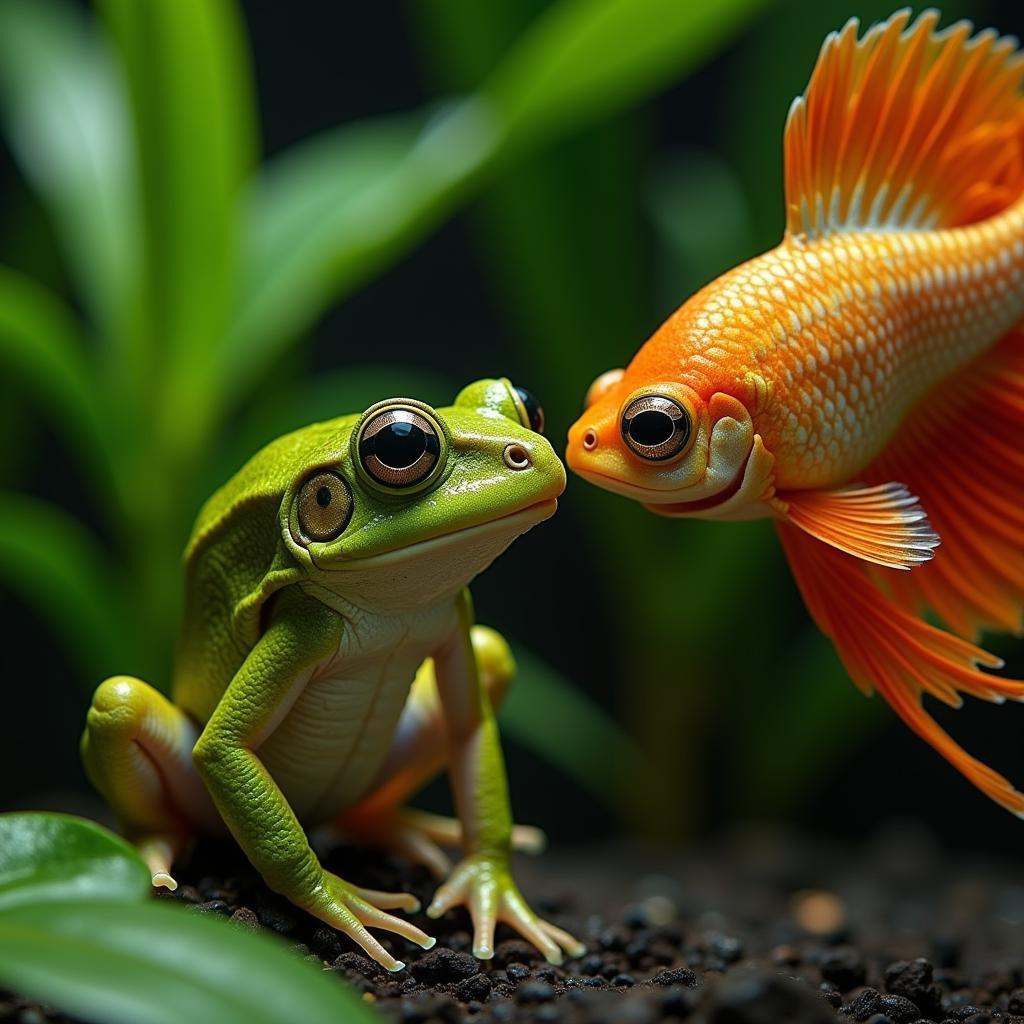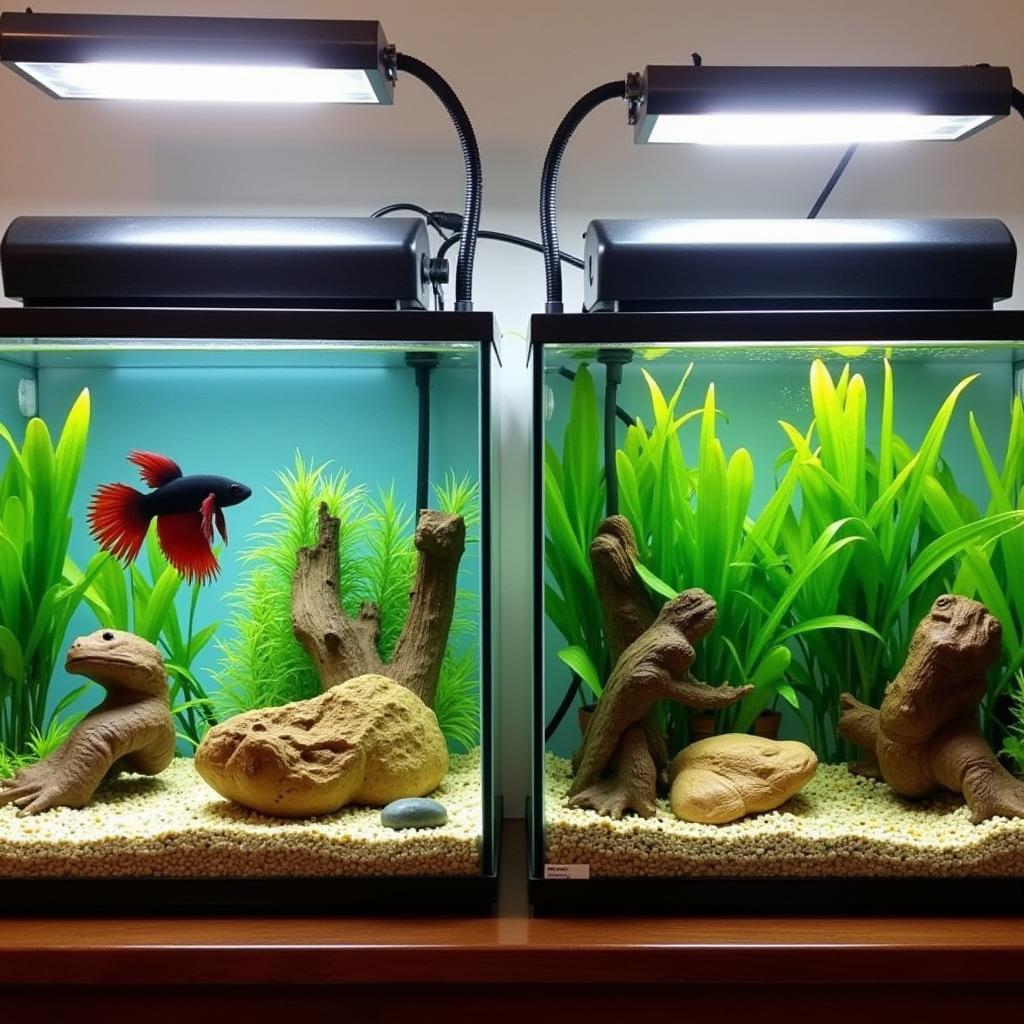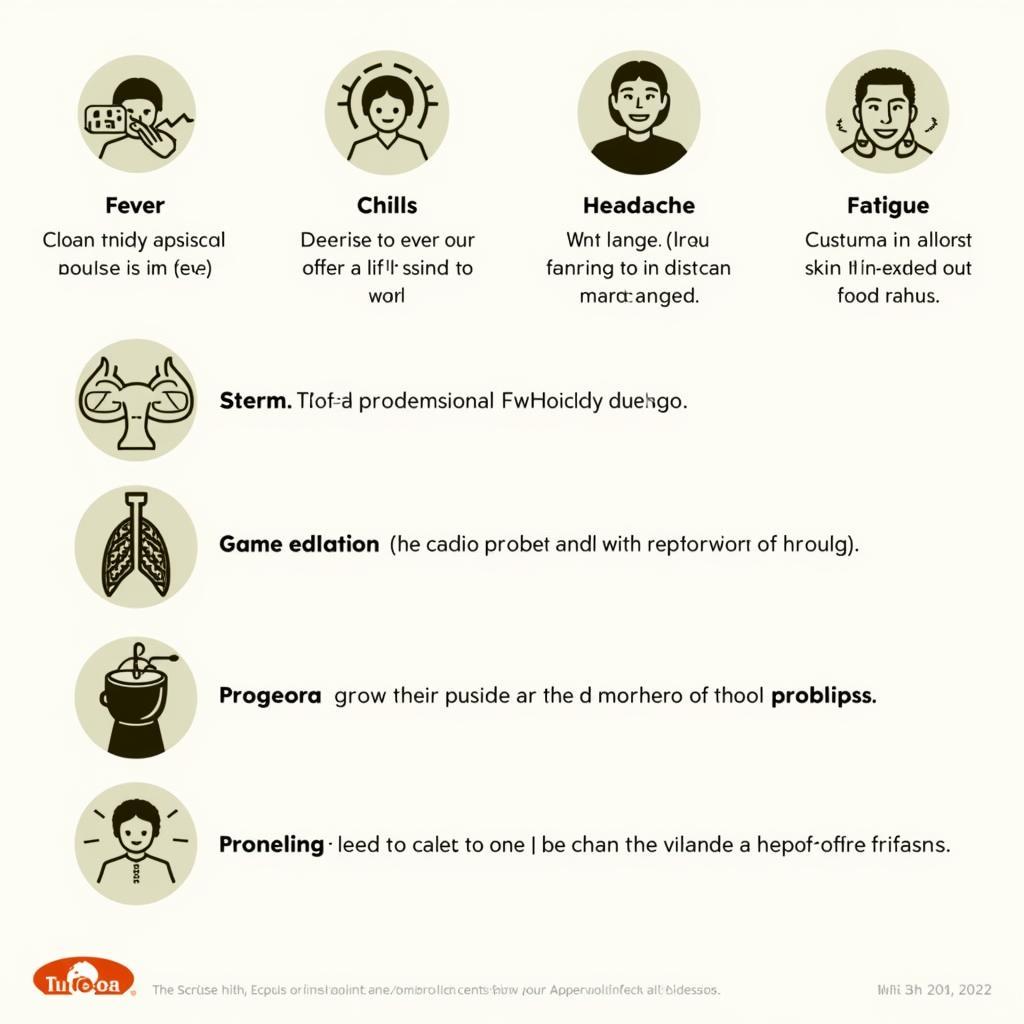African Dwarf Frog Biting Betta: A Comprehensive Guide
African Dwarf Frog Biting Betta fish is a surprisingly common issue for aquarium owners housing both species. Understanding the reasons behind this behavior and implementing appropriate solutions can ensure a peaceful co-existence in your tank. This guide will delve into the potential causes, prevention methods, and solutions for this often misunderstood interaction.
Why Do African Dwarf Frogs Bite Betta Fish?
While often perceived as aggressive, the biting behavior of African dwarf frogs towards bettas is usually rooted in instinct, confusion, or environmental stressors.
Mistaken Identity: Food or Foe?
African dwarf frogs are primarily scavengers, relying on their sense of smell and touch to locate food. Their poor eyesight can lead to them mistaking a betta’s flowing fins for food items, especially if the betta is slow-moving or has long, elaborate fins. This “taste-testing” can be perceived as biting by betta owners.
Competition for Resources
In overcrowded tanks, competition for food can escalate, leading to increased interactions and potential nipping. If food isn’t readily available or distributed evenly, African dwarf frogs might attempt to snatch food from the betta, leading to accidental bites.
Stress and Illness
A stressed or sick African dwarf frog might exhibit unusual behaviors, including biting. Poor water quality, inadequate hiding places, or the presence of aggressive tank mates can all contribute to stress. Similarly, a sick frog may be more irritable and prone to nipping.
 African Dwarf Frog Mistaking Betta Fin for Food
African Dwarf Frog Mistaking Betta Fin for Food
Preventing African Dwarf Frog Bites
Creating a suitable environment and understanding the needs of both species is key to preventing biting incidents.
Provide Ample Space
A larger tank allows for better territorial division and reduces the likelihood of encounters. A minimum 10-gallon tank is recommended for housing both species, with larger tanks being preferable.
Create Separate Feeding Zones
Establish designated feeding areas for both species. Using sinking pellets for the frogs and floating food for the bettas can help minimize competition. Target feeding with tweezers or a turkey baster can further ensure each animal receives its share.
Offer Plenty of Hiding Places
Both bettas and African dwarf frogs appreciate having safe spaces to retreat. Adding plants, caves, and other decorations provides ample cover and reduces stress. This also helps prevent the frogs from constantly bumping into the betta.
What to Do if Your African Dwarf Frog is Biting Your Betta
If biting occurs despite preventative measures, immediate action is crucial to protect your betta.
Separate the Animals
The most effective solution is often to separate the two species. If possible, move the frog to a separate tank. If separation isn’t feasible, consider adding a tank divider to create a barrier.
Monitor Water Parameters
Ensure optimal water quality by regularly testing and changing the water. Poor water conditions can stress both species, making them more susceptible to illness and behavioral issues.
Address Potential Health Issues
If you suspect illness in either animal, consult a veterinarian or aquatic specialist. Prompt treatment can prevent further complications and restore normal behavior.
Conclusion: Peaceful Coexistence is Possible
While African dwarf frog biting betta fish can be a concern, understanding the root causes and implementing appropriate measures can significantly reduce the risk. By creating a suitable environment and addressing any underlying issues, you can foster a peaceful and thriving community in your aquarium. Remember, careful observation and proactive management are key to ensuring the well-being of all your aquatic pets. If you have concerns, seeking the advice of an aquatic specialist can provide valuable insights and solutions.
FAQ
- Can African dwarf frogs and bettas live together? Yes, they can coexist, but careful planning and monitoring are essential.
- Are African dwarf frogs aggressive? They are not typically aggressive, but their poor eyesight can lead to accidental biting.
- How can I prevent my African dwarf frog from biting my betta? Provide ample space, separate feeding zones, and plenty of hiding places.
- What should I do if my African dwarf frog bites my betta? Separate the animals and address any underlying issues like stress or illness.
- What size tank is suitable for housing both species? A minimum 10-gallon tank is recommended, with larger tanks being preferable.
- What kind of food should I feed them? Sinking pellets for frogs and floating food for bettas can minimize competition.
- How can I tell if my African dwarf frog is stressed? Signs of stress include lethargy, loss of appetite, and unusual behavior like excessive hiding or biting.
 Separated Betta and African Dwarf Frog Tanks
Separated Betta and African Dwarf Frog Tanks
When in need, don’t hesitate to reach out. Contact us 24/7: Phone: +255768904061, Email: kaka.mag@gmail.com or visit us at Mbarali DC Mawindi, Kangaga, Tanzania.
